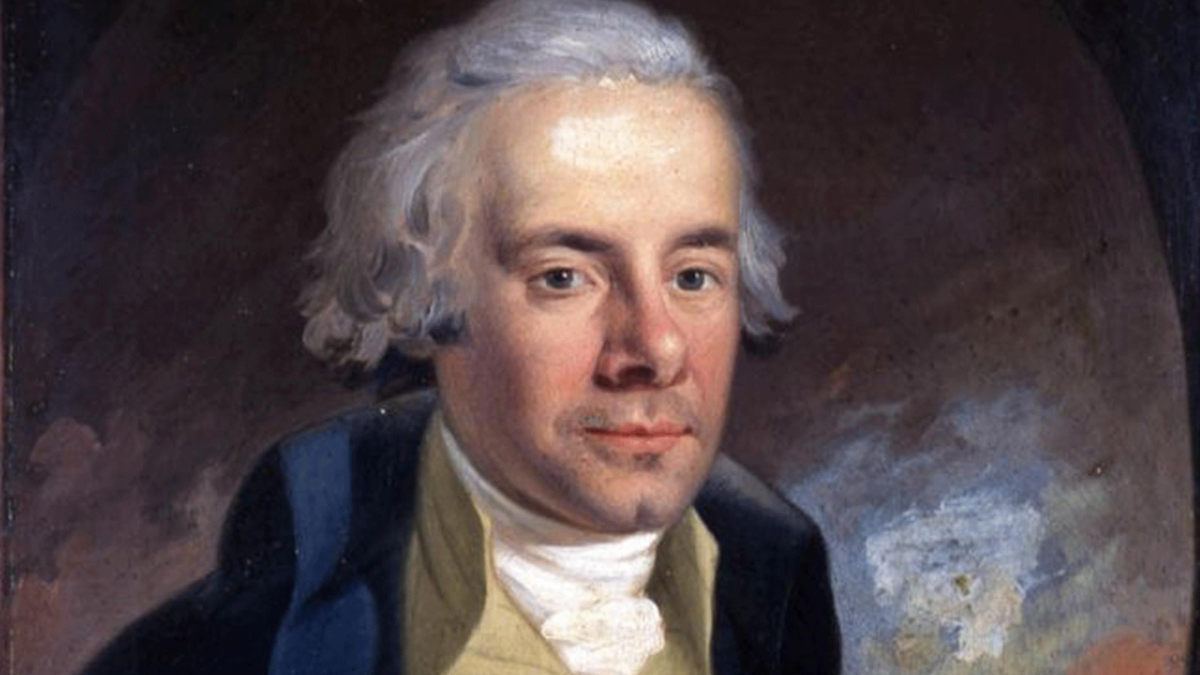

Death of William Wilberforce
Parliamentarian was a self-professed fanatic for the Gospel, leading him to be a key abolitionist of the slave trade.
07/28/23
John Stonestreet Kasey Leander

190 years ago today, the great British parliamentarian and abolitionist William Wilberforce died at the home of his cousin near Westminster, London. Three days earlier, Parliament had passed the Slavery Abolition Act, which “abolished slavery in most British colonies, freeing more than 800,000 enslaved Africans in the Caribbean and South Africa as well as a small number in Canada” on condition that the Crown compensated slave owners. When his friend Thomas Babington Macaulay delivered the news, Wilberforce allegedly responded, “Thank God that I should have lived to witness the day in which England is willing to give 20 million sterling for the abolition of slavery.”
Upon the news of his death, newspapers around the world proclaimed Wilberforce “as pure and virtuous a man as ever lived.”
During his life, however, he endured incredible opposition and even hostility. England benefited both economically and militarily from the transatlantic slave trade. Some 46,000 British families owned slaves, and during war with France, abolitionists were accused of being unpatriotic. In a private letter, legendary naval hero Lord Horatio Nelson wrote that he would never surrender Britain’s “West India possessions … whilst I have an arm to fight in their defen[s]e, or a tongue to launch my voice against the damnable and cursed doctrine of Wilberforce and his hypocritical allies.” One of Wilberforce’s most vocal opponents, a slave trader named George Hibbert, was a fellow congregant at his church, Holy Trinity Clapham.
Many years ago, Chuck Colson described Wilberforce as “biblical worldview in action”:
When Wilberforce came to Christ early in his political career, he thought about leaving Parliament and public life altogether. Thankfully, William Pitt—who went on to become Great Britain’s youngest prime minister—convinced him otherwise. Pitt wrote to Wilberforce: “Surely the principles as well as the practice of Christianity are simple and lead not to meditation only, but to action.”
And for the rest of his life, Wilberforce’s Christianity meant action. His fiercely unpopular crusade against the slave trade consumed his health and cost him politically—but he could not stand idly by and see the imago Dei, the image of God, enslaved and abused in the holds of ships. He endured verbal assaults and was even challenged to a duel by an angry slave-ship captain.
When the French Revolution began, what had been merely an unpopular position became a dangerous one in Britain. Wilberforce’s detractors charged that the humanist revolution would sweep England, and Wilberforce, with his passion for the slaves, was made suspect.
Nonetheless, Wilberforce persevered. Writing about political expediency and whether to give up the fight, Wilberforce notes, “a man who fears God is not at liberty” to give up.
But Wilberforce’s worldview led him to engage in more than just the issue of slavery. He sold his home and dismissed servants to have more money to give to the needy. He fought for prison reform. He founded or participated in sixty charities. He convinced King George III to reissue a proclamation encouraging virtue and reinstated the Proclamation Society to help see such virtue encouraged. He cared for God’s creation, founding the Society for the Prevention of Cruelty to Animals; and he championed missionary efforts, like the founding of the British and Foreign Bible Society.
All of us would do well to take Pitt’s words to Wilberforce to heart: Surely the principles and practice of Christianity lead not just to meditation, but to action.
Chuck penned these words around the 2006 biographic film of Wilberforce’s life, Amazing Grace. Last week, one of our nation’s greatest leaders revealed that she watches this film at least once a year.
The life of William Wilberforce is a direct rebuke to a privatized faith. Having had a very personal experience with God through Jesus Christ, for Wilberforce, Real Christianity (which was also the title of his book) requires living out the full implications of the Gospel. For him that meant embracing conflicts with his culture, challenges to his reputation, and doing hard things if they were the right things to do. As he put it, “If to be feelingly alive to the sufferings of my fellow-creatures … is to be a fanatic, I am one of the most incurable fanatics ever permitted to be at large.”
Thank God that he was.
This Breakpoint was co-authored by Kasey Leander. If you’re a fan of Breakpoint, leave a review on your favorite podcast app. For more resources to live like a Christian in this cultural moment, go to breakpoint.org.
Topics
abolitionist
Christian History
historical figure
History
Real Christianity
Slavery
William Wilberforce
Have a Follow-up Question?
Up
Next

Related Content

© Copyright 2020, All Rights Reserved.













